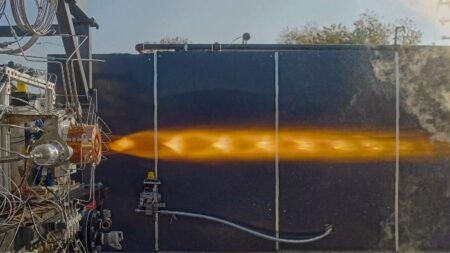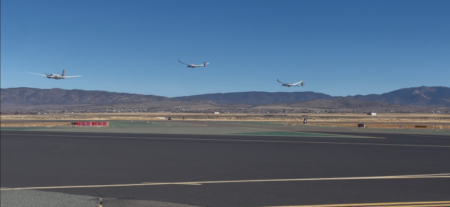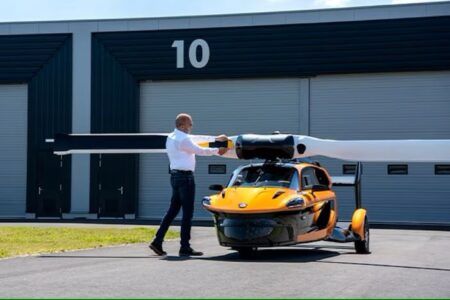Bristol, UK-based startup Vertical Aerospace has revealed flight footage of its electric vertical take off and landing aircraft, which is capable of carrying loads of up to 250kg.
The prototype, named Seraph, is the second built by the company and completed its maiden flight at Llanbedr Airfield in Wales, UK on August 22.
Vertical Aerospace’s first full-scale prototype made its first flight in May 2018.
According to Vertical Aerospace the Seraph is the first electric vertical take off and landing (eVTOL) aircraft in the world to successfully carry 250kg. The Seraph can reach speeds of up to 80km/h. It features a passive cooling system and a customisable design, meaning the aircraft can be made larger or smaller, fitted with wheels or floats to facilitate water landings.
The Seraph has been built to test new technologies and systems for integration into Vertical Aerospace’s upcoming passenger model, which it plans to launch next year. The company has already begun the certification process for its next model, a passenger aircraft due to be unveiled next year.
Stephen Fitzpatrick, founder and CEO of Vertical Aerospace said, “This is a major milestone on the path towards carbon-free flight. One year ago, we flew a full scale electric VTOL aircraft, the UK’s first. Today, we’re revealing flight footage of our second full scale prototype, the Seraph, an air taxi prototype capable of carrying 250kg.
“Air travel is one of the worst contributors to climate change and among the slowest sectors to decarbonise. Our mission at Vertical Aerospace is to make personal, on demand and carbon free flight a reality.”
Vertical Aerospace has also recently acquired race car engineering consultancy MGI, increasing the number of people in the company from 50 to 70. MGI have worked with Formula 1 and Formula E teams such as Williams, McLaren, Tyrell, Benetton, Renault and Lotus and have experience in building fast, light-weight composite structures
Mike Gascoyne, who was previously CEO of MGI, has become the chief technology officer of a new part of Vertical Aerospace called Vertical Advanced Engineering. He said, “We have long believed that the technologies and approaches from Formula 1 could be applied to a range of engineering challenges. Vertical Aerospace’s vision provides a fantastic outlet for our experience and an opportunity to shape the future of flight.
“Joining the Vertical team will allow us to work on cutting edge engineering programs while continuing to provide world-class consultancy services to the wider engineering community.”
Vertical Aerospace, which was founded in 2016, aims to develop the eVTOL aircraft and then run the routes it flies on, starting with piloted air taxi services on city-to-city routes. As technology and regulatory framework develops, it plans to grow the number of chartered routes served and introduce elements of autonomy to the service.




